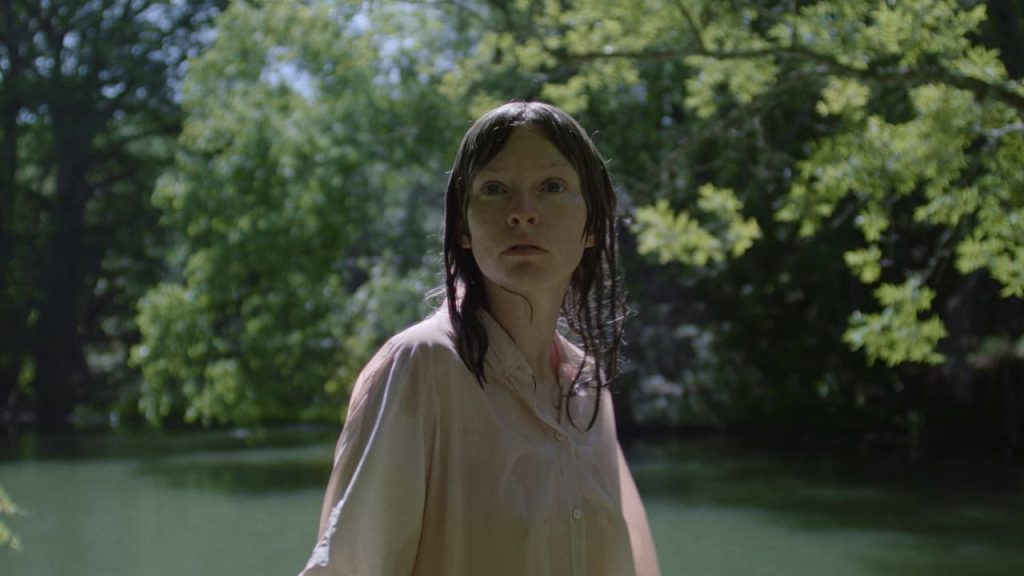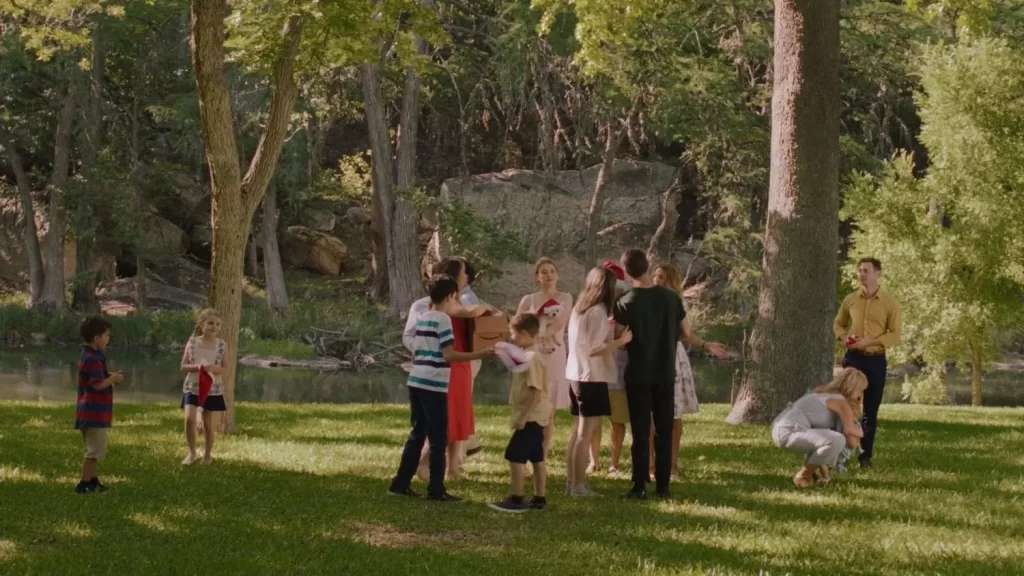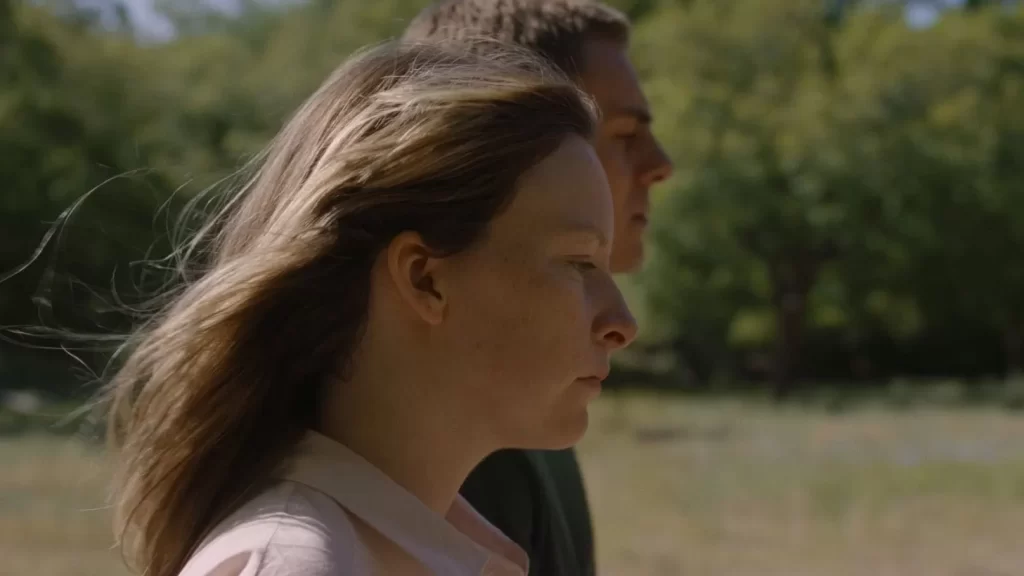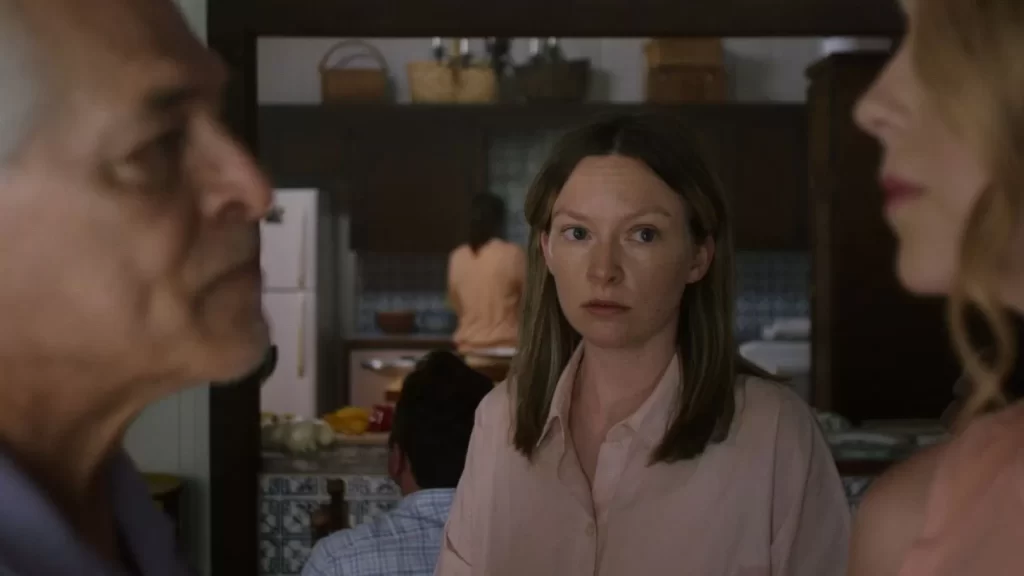A Haunting Exploration of Pre-Pandemic Tensions
In the realm of cinematic storytelling, “Family Portrait” emerges as a haunting and evocative film that captures the eerie calm before the storm of the COVID-19 pandemic. Directed by the visionary Kerr, this film is a masterclass in creating tension and atmosphere, using the sound of wind and the visual language of dreams to tell a story that feels both familiar and unsettling. Starring Deragh Campbell and Chris Galust, “Family Portrait” is a film that lingers in the mind, much like the memories of family gatherings it so poignantly depicts.




“Family Portrait” is set in the days leading up to the COVID-19 pandemic, a time when the world was blissfully unaware of the impending chaos. The film follows a seemingly well-off family as they gather at their estate for their annual holiday photograph. The narrative centers around Katy (Deragh Campbell) and her Polish boyfriend, Olek (Chris Galust), who have come home to participate in the family tradition. However, the simple act of taking a family photo becomes a source of tension and unease as the matriarch inexplicably disappears and the family grapples with underlying issues that the photograph cannot capture.
Kerr’s direction in the film is nothing short of mesmerizing. The film opens with a silent, dreamlike sequence of a family moving through a field, setting the tone for the rest of the film. The camera’s fluid movements and the gradual introduction of sound create a sense of foreboding that permeates the entire narrative. Kerr’s use of static shots, which feel like eavesdropping on private conversations, adds to the film’s voyeuristic quality, making the audience feel like silent observers of the family’s unraveling.
The writing in “Family Portrait” is equally compelling. The dialogue is natural and unforced, capturing the mundane yet significant interactions that occur during family gatherings. The film’s exploration of themes such as displacement, confusion, and the fragility of family bonds is both subtle and profound. The tension between Katy and Olek, as well as the family’s reaction to the matriarch’s disappearance, serves as a microcosm of the larger anxieties that would come to define 2020.
Deragh Campbell delivers a standout performance as Katy, a character caught between her family’s expectations and her own desires. Campbell’s portrayal of Katy’s growing unease and determination is both nuanced and powerful. Chris Galust, as Olek, provides a strong counterpoint to Campbell’s performance, capturing the outsider’s perspective with sensitivity and depth.
The supporting cast, though not as prominently featured, adds to the film’s authenticity. Each family member’s reaction to the unfolding events feels genuine, contributing to the overall sense of realism that Kerr so masterfully creates.
The cinematography in “Family Portrait” is a visual feast. Kerr’s use of natural light and the interplay of shadows create a hauntingly beautiful aesthetic. The film’s visual language, characterized by fluid camera movements and static shots, enhances the dreamlike quality of the narrative. The sound of wind, a recurring motif throughout the film, adds an auditory layer to the visual storytelling, heightening the sense of impending doom.
“Family Portrait” is a film that delves deep into the themes of family, memory, and the passage of time. The annual holiday photograph, a seemingly innocuous tradition, becomes a symbol of the family’s attempt to capture and preserve a moment of happiness amidst underlying tensions. The film’s exploration of the disconnect between appearance and reality is both timely and timeless, resonating with audiences on a deeply personal level.
The film’s setting, just before the onset of the COVID-19 pandemic, adds an additional layer of poignancy. The sense of unease and displacement that permeates the narrative mirrors the collective anxiety that would soon grip the world. “Family Portrait” serves as a poignant reminder of the fragility of normalcy and the unpredictable nature of life.
“Family Portrait” is a cinematic gem that deserves to be seen and appreciated. Its masterful direction, compelling performances, and haunting cinematography make it a standout film in the landscape of contemporary cinema. While it may not be a conventional family drama, its exploration of pre-pandemic tensions and the fragility of family bonds is both profound and resonant.
For those interested in watching “Family Portrait,” it is available on iWatchOnline.
Frequently Asked Questions (FAQs)
What is “Family Portrait” about?
“Family Portrait” is a drama set in the days leading up to the COVID-19 pandemic. It follows a family as they gather for their annual holiday photograph, exploring themes of displacement, confusion, and the fragility of family bonds.
Who stars in “Family Portrait”?
The film stars Deragh Campbell as Katy and Chris Galust as her Polish boyfriend Olek. The supporting cast includes a range of talented actors who contribute to the film’s authenticity.
Who directed “Family Portrait”?
“Family Portrait” was directed by Kerr, who also contributed to the film’s writing.
Is “Family Portrait” based on a true story?
While “Family Portrait” is not based on a specific true story, it captures the universal experience of family gatherings and the underlying tensions that often accompany them.
Where can I watch “Family Portrait”?
“Family Portrait” is available for streaming on iWatchOnline.
What makes “Family Portrait” different from other family dramas?
“Family Portrait” stands out for its masterful direction, haunting cinematography, and subtle exploration of pre-pandemic tensions. The film’s use of natural light, fluid camera movements, and the recurring motif of wind create a dreamlike quality that sets it apart from conventional family dramas.
How has “Family Portrait” been received by critics?
“Family Portrait” has been praised for its compelling performances, masterful direction, and haunting cinematography. Critics have highlighted the film’s ability to capture the universal experience of family gatherings and the underlying tensions that often accompany them.
For more information and to watch “Family Portrait,” visit iWatchOnline.



